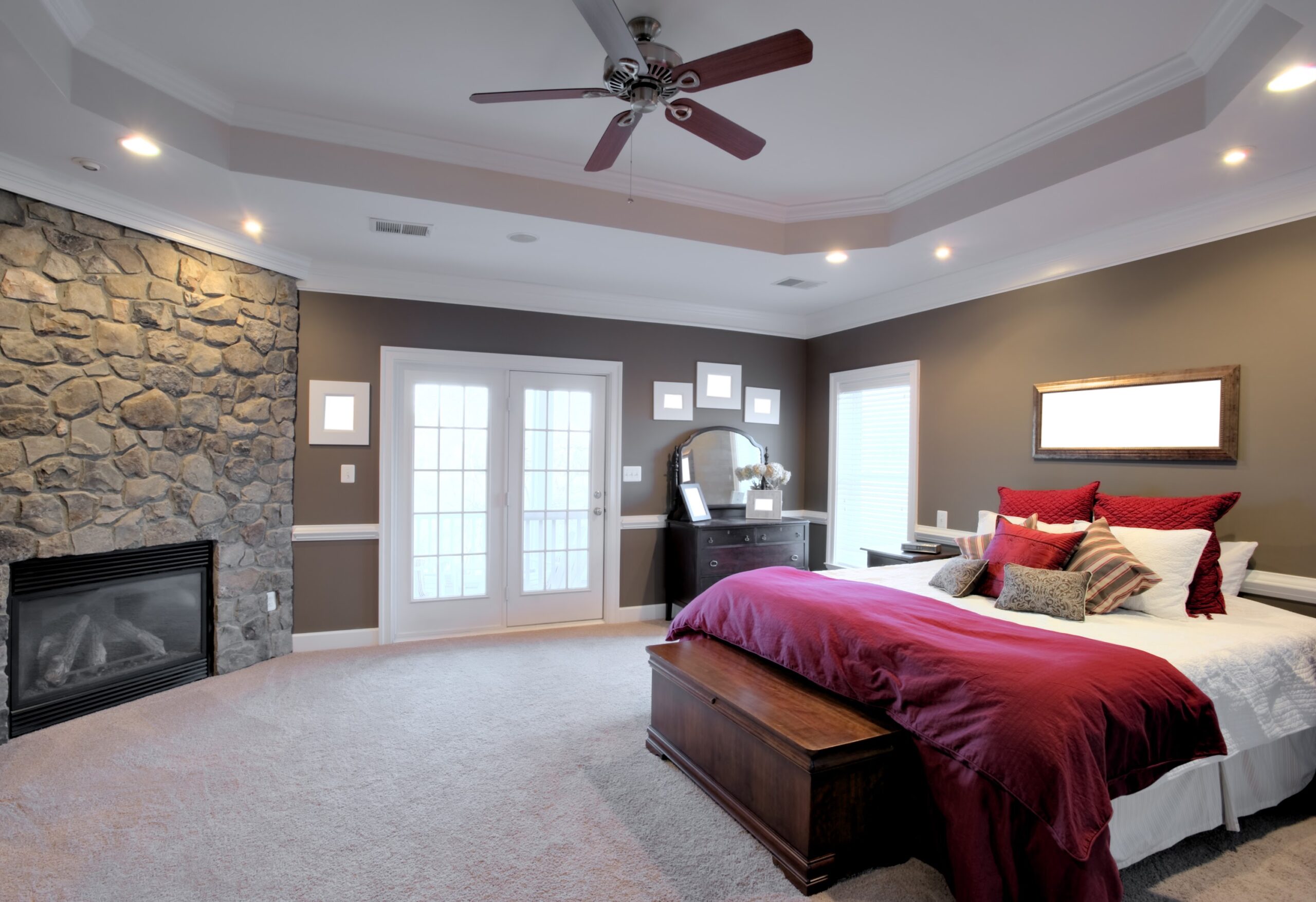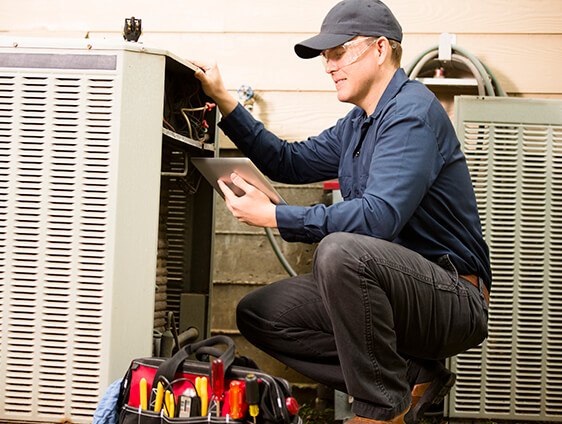Like most people, you probably don't think much about your air conditioner's individual components until…

We get hit with a lot of different questions when we’re doing service calls at residential homes, and we’re happy to answer them. The more our clients know, the better informed they are when they need to make decisions about their air conditioning systems. One common question we get is whether or not ceiling height impacts how efficient an air conditioning system can be. The short answer is that it absolutely impacts air conditioner efficiency. What makes this interesting is that it can be a little complicated. The impact on efficiency isn’t always good, but it’s not always bad either.
What Is Standard Ceiling Height?
First, it helps to know what’s a high ceiling or not. As a general rule of thumb, it might be any ceiling that is 10 feet or higher. Many homes built as recently as the 1970s and 1980s might have had 8-foot ceilings as the norm. This had a lot to do with 8-foot pieces of lumber being commonly used in construction and an effort to keep utility costs down during an energy crisis. Since then, the typical standard ceiling height in many homes is now 9 feet in height. Having said that, many homes might have 8-foot ceilings on the ground level and 9-foot ceilings on other levels.
How Ceiling Height Impacts Air Conditioner Efficiency Negatively
The biggest impact that high ceilings have on air conditioner efficiency is that there is simply more space that needs to be cooled down. Determining the proper capacity for the right size of an air conditioner is usually based on the square footage of your home. However, those calculations usually assume standard ceiling heights. You will need to account for the extra space in any rooms with high ceilings when making sure your air conditioner is powerful enough. Having a system that is underpowered will make its efficiency go down. Interestingly, an overpowered unit will also be less efficient.
When your home’s air conditioner doesn’t have as much power as it should for the cubic space in your home to be cooled, it’s going to have to work harder to get the job done. That means that AC cycles will trigger more frequently, and they will also run longer. In the summer, your AC might not even actually get your home cooled down at all. All of this increases the workload on the unit. It will wear down faster than it is supposed to. All that wear and tear will also mean you spend more on repairs during its shortened lifespan before needing to replace it sooner than you otherwise would.
An overpowered unit can actually run the same risk. An AC that is more powerful than your home needs will have shorter cycles. At first, this might seem like a good thing. Your home will cool down faster. However, short cycles don’t give the air conditioner time to actually remove humidity from the air. So, your home will be cool, but it will also be clammy. The next AC cycle will happen sooner than it should and again do the same thing. High frequencies of short cycles mean the air conditioner is going through its startup sequence more often, and this is when an AC unit suffers the most wear and tear. You will again be facing more frequent repairs and replacement sooner than you should.
The Positive Sides of High Ceilings
It is not all bad news if you have high ceilings. You’ve got more room for ductwork. We might be able to install low- or high-return air registers in rooms with high ceilings. You’d be able to use magnetic covers or dampers to shut down lower returns during the summer so the high return can pull heat away from the ceiling. That will increase the buildup of cool air in a high-ceiling room in the summer. You would do the opposite during the colder winter.
High ceilings also might make it more likely to feel cool in their rooms. They mean extra work for your air conditioner, but you might be more comfortable at the floor level since hot air rises. You will also have more room to hang a ceiling fan. Clockwise fan rotation in the winter can pull warm air down where you want it, but counterclockwise rotation can promote an evaporative effect that makes a room with a high ceiling feel up to 8 degrees Fahrenheit cooler than it really is.
Compensating for Just One Room
If you only have one or two rooms with high ceilings, you might try to compensate for them by just running the fan portion of your AC system, even when the condenser isn’t engaged. This does have the benefit of stabilizing temperatures throughout your home, but it does come with two downsides. First, you are putting more wear and tear on your system. Second, you are running up your utility bill. Needless to say, this makes your AC system less efficient, even when the actual cooling mechanisms aren’t operating. It’s easier to address specific room temperatures with new registers, ceiling fans, and blinds or curtains.
Determining Proper AC Capacity
Your air conditioner needs to be in a sweet spot where it is not underpowered or overpowered for the cubic area of your home. The volume of air in your home is the primary consideration. However, sun exposure in your home might also be a factor you need to think about.
Air conditioner capacity is usually measured in the number of BTUs it can crank out in a single hour. This is also known as BTU/hr. The average American home is approximately 2,300 square feet. A proper AC unit would need 34,000 BTU/hr to cool that down. You can use charts to find the proper BTU for your home, but an HVAC technician can also help you make these calculations.
Any room that has a high ceiling will need 1000 BTU/hr added for each foot past standard ceiling height. If you have one room with a high ceiling, then this would be just one addition. However, if you have multiple rooms with high ceilings, then you have to make additions for each room.
If a lot of your home faces the sun during the day without shade, then extra BTU might be necessary. That can increase power consumption by up to 10%.
Another factor that increases your need for BTU throughout your home is how many appliances you have. Kitchen appliances, in particular, might generate considerable heat and thermal energy that needs to be dissipated.
Contact Air Conditioning Professionals at IT Landes Today
Count on our heating and cooling services to get your system as efficient as can be. We also handle maintenance, repairs, and installation. Turn to us for clean and safe air in your home or business, and rely on our broader team for plumbing matters and fuel oil supplies. We have memberships available for affordable preventative maintenance and inspections. Contact us at IT Landes at your earliest convenience to learn more about all of this.


